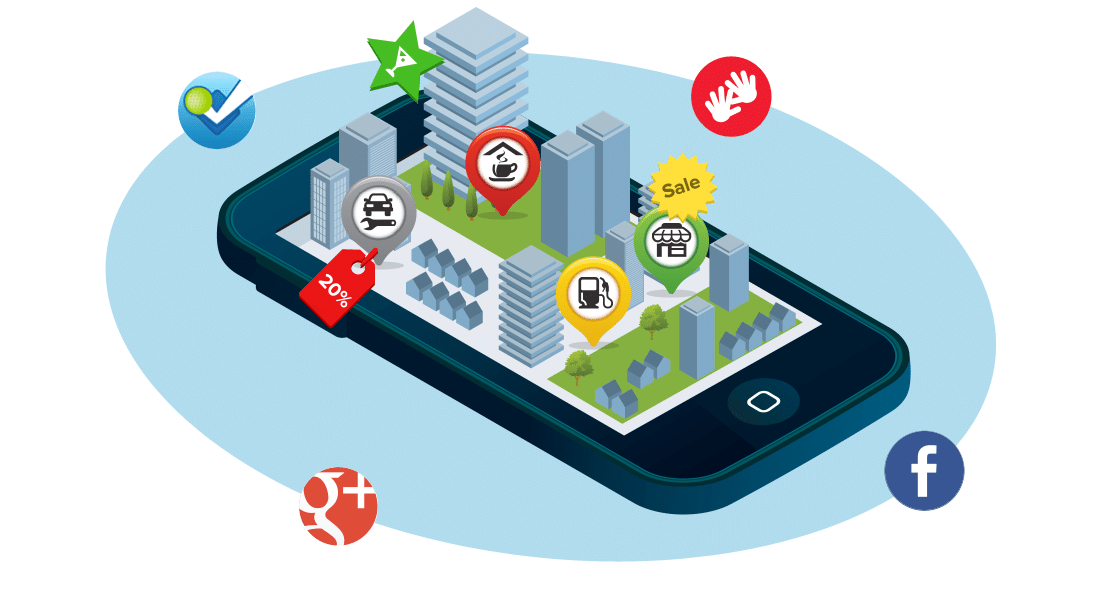With the advent of smartphones, location-based apps have become increasingly popular. These apps use GPS technology to track the user’s location and provide them with relevant information, services, and content. They have transformed the way we interact with the world around us, making our lives more convenient and efficient. In this article, we will explore why location-based application development is crucial and how they can benefit businesses and consumers alike.
What are location-based apps?
These are mobile applications that use GPS technology to provide users with information, services, or content based on their location. These apps can use a smartphone’s GPS, Wi-Fi, or cellular network to track the user’s location and provide location-specific information or services. For example, a restaurant app can use GPS technology to show nearby restaurants and provide reviews and ratings for each restaurant.
Advantages of location-based applications
Such apps have numerous advantages that make them popular among businesses and consumers. Some of the advantages are as follows:
Personalized Experience
Location-based apps provide a personalized experience to users by tailoring information, services, or content based on their location. For example, a shopping app can suggest nearby stores based on the user’s location and preferences, providing a personalized shopping experience.
Convenience
They provide users with real-time information and services, making their lives more convenient. For example, a taxi app can use GPS technology to find the user’s location and provide them with a nearby taxi in real-time, eliminating the need to wait on the street for a taxi.
Better Engagement
Such apps can increase engagement and loyalty by providing users with relevant and timely information or services. For example, a fitness app can provide users with nearby gyms, tracks, or workout classes, keeping them engaged in their fitness journey. Or a chatting app development company can help you create the app that will connect users based on their location and proximity, thus facilitating the communication between them.
Increased Revenue
Location-based apps can increase revenue for businesses by providing targeted advertising and promotions. For example, a restaurant app can provide users with discounts or promotions for nearby restaurants, increasing foot traffic and revenue for the restaurant.
Challenges
This type of solutions has gained popularity over the years for their ability to provide personalized and real-time information based on a user’s location. However, they also face several challenges. One major challenge is balancing personalization with privacy concerns. These apps collect data on a user’s movements and activities, which can be misused or fall into the wrong hands. Another challenge is ensuring accurate and up-to-date location information.
Inaccurate data can lead to incorrect recommendations or directions, frustrating users and damaging the app’s credibility. Technical challenges with GPS functionality and battery drain and data usage concerns also pose challenges. Addressing these challenges is crucial to deliver a positive user experience and maintain user trust in the collection and use of location data.
Industries that benefit from location-based apps
Several industries can benefit from these solutions. Some of the industries are as follows:
Retail
Location-based apps can provide retailers with targeted advertising, promotions, and personalized experiences to customers. For example, a retail app can use GPS technology to show nearby stores and provide in-store promotions to customers, increasing foot traffic and revenue for the store.
Healthcare
They can provide patients with real-time information and services, making healthcare more accessible and convenient. For example, a healthcare app can use GPS technology to find nearby hospitals or clinics and provide telemedicine services to patients.
Hospitality
These apps can provide hotels and resorts with personalized experiences and targeted advertising. For example, a hotel app can use GPS technology to show nearby attractions and provide in-room services to guests, making their stay more enjoyable and convenient.
Conclusion
Location-based solutions have become an essential part of our lives, providing us with personalized experiences, convenience, and real-time information. Businesses can benefit from location-based apps by providing targeted advertising, promotions, and personalized experiences to customers, increasing revenue and engagement. Consumers can benefit from location-based apps by getting real-time information, services, and content tailored to their location and preferences. With the growing popularity of smartphones and GPS technology, such apps will continue to transform the way we interact with the world around us.
FAQs
Q1. How does a location-based app work?
A location-based app uses GPS, Wi-Fi, or cellular network to track the user’s location and provide them with relevant information, services, or content based on their location.
Q2. Are location-based apps safe to use?
Yes, they are safe to use as long as they are downloaded from a trusted source and the user grants permission to access their location. It is essential to ensure the app’s privacy policy and terms and conditions before using the app.
Q3. How can businesses benefit from location-based apps?
Businesses can benefit from these apps by providing targeted advertising, promotions, and personalized experiences to customers, increasing revenue and engagement.
Q4. Are location-based apps only available on smartphones?
No, they can also be available on other devices like tablets, smartwatches, and laptops, provided they have GPS technology.
Q5. How can consumers benefit from location-based apps?
Consumers can benefit from them by getting real-time information, services, and content tailored to their location and preferences, making their lives more convenient and efficient.
